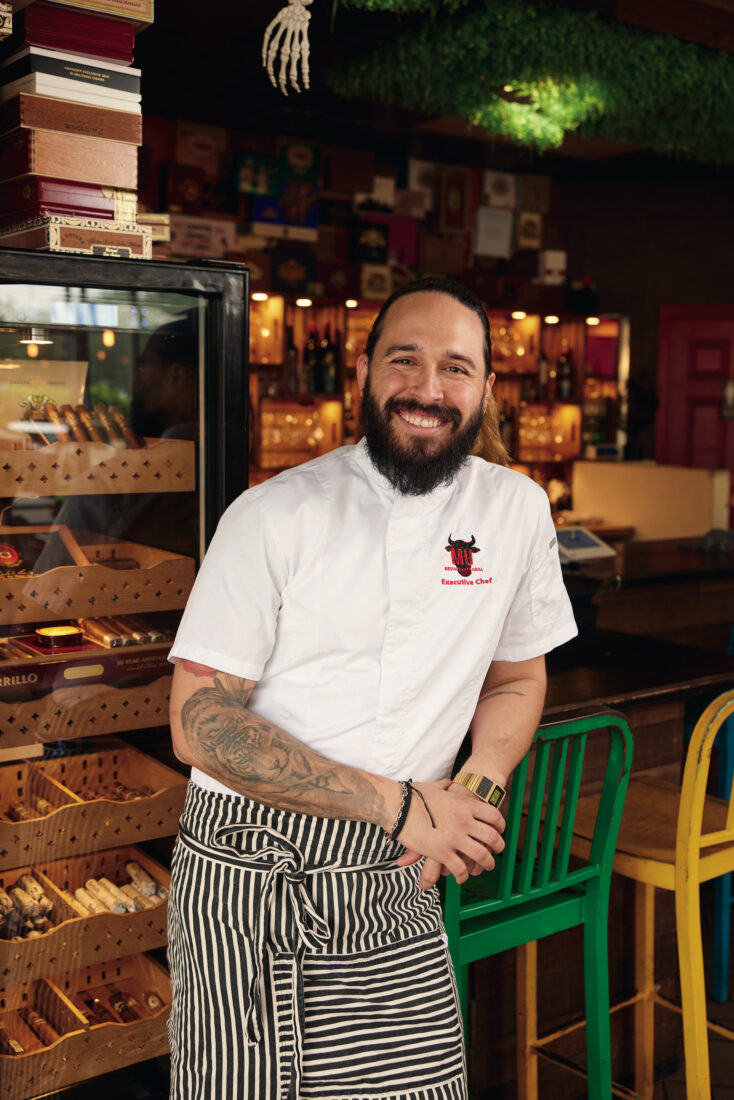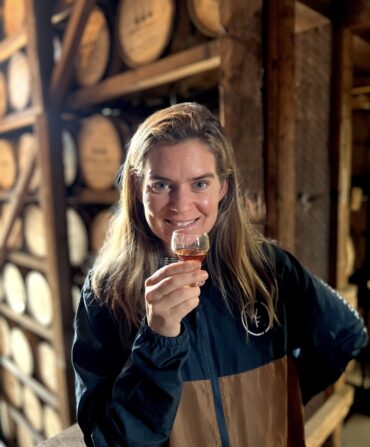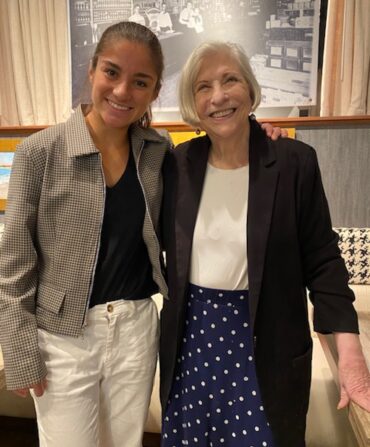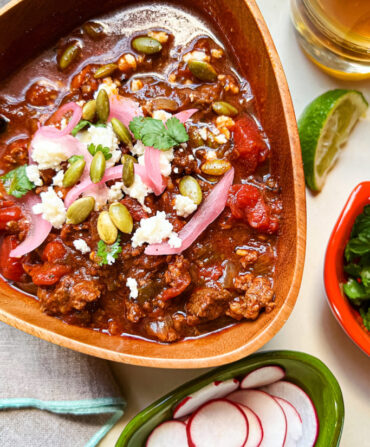A white Jeep blocks the old drive-through lane of a one-time McDonald’s, set in the back of a Shell station in the Orlando suburb of Kissimmee, a patchwork of stucco strip malls southeast of the theme parks. On the deck around front, men gather in the dark beneath strings of café lights, wearing flower print shirts and flip-flops, smoking fat cigars, bright red tips dancing across the night like fireflies.
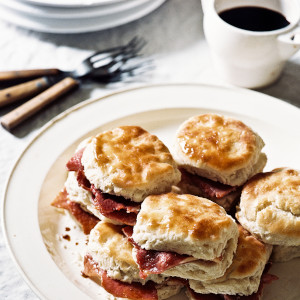
From the back corner of a dining room lined with faux ivy walls and set with butcher paper–draped café tables, a seven-piece band blares, heavy on the accordion. The lead singer shouts out to all the Colombians in the house. All the Dominicans. A waiter, dressed in black, delivers a tamarind-glazed pork belly to a table and steps back to dance, hands in the air.
My flight landed at nine. Orlando traffic coughed me up at Mu Restaurant around ten. Frazzled, I walked into a Wednesday house party, where everyone acts as if they’re three drinks into a five-drink night. This is how I felt the first time I stepped into Fred’s Lounge, a bar in Mamou, Louisiana, in Cajun Country. Couples waltzed, men drank cans of beer, women downed shots of schnapps. They were not my people, but I desperately wanted to belong to their place.
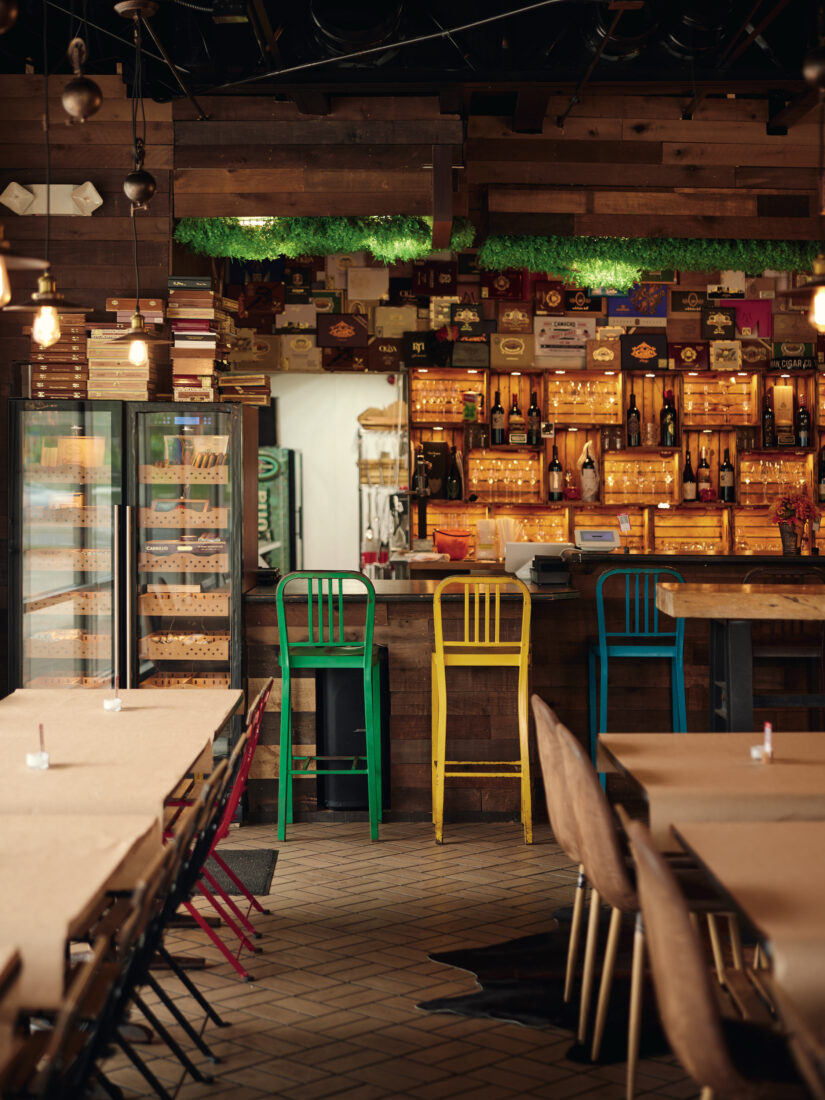
Arturo takes a seat at the bar next to me. Before he moved to Orlando, he worked the door at a luxury hotel in New York City. Now he manages a Gucci outlet here. A Dominican, he’s a regular at Mu because everybody speaks to one another: Venezuelans, Puerto Ricans, everybody, he says. As we talk, I track a fellow with a tie-dyed apron and a man bun who steps from the kitchen to watch the band. He smiles and salsas before ducking back in to plate a rib eye.
I order a martini variation made with gin and sage, served in an elegant coupe. For my neighbor, the bartender pours a bourbon sour, sweetened with fig jam, served in a purple ceramic pig, scattered with edible flowers. Mofonguitos, little cups of plantain, come mounded with garlic shrimp. Ceviche, tossed with mangoes and jalapeños, arrives in a glass bowl that gives the dish the look of an aquarium. This is boat ceviche, says Valentina Diaz, my waitress from Venezuela, inspired by the version that owner Claudio Dominguez, who has roots in the Dominican Republic, makes after fishing the Gulf for snapper or grouper.
At lunch the next day, I meet the chef in that tie-dyed apron. Nibaldo Urdaneta grew up in Maracaibo, Venezuela, where his people raised livestock and worked as butchers. Topped by a soufflé of blue cheese, crowned with bacon gastrique, his burger speaks to the beef culture into which he was born and the American culture he and Dominguez have embraced. So does his espetada, a stack of sirloin cap fillets topped with a hunk of pineapple, threaded onto a sword, and mounted on a stand so that juice from the beef drips onto the cheese arepas below.
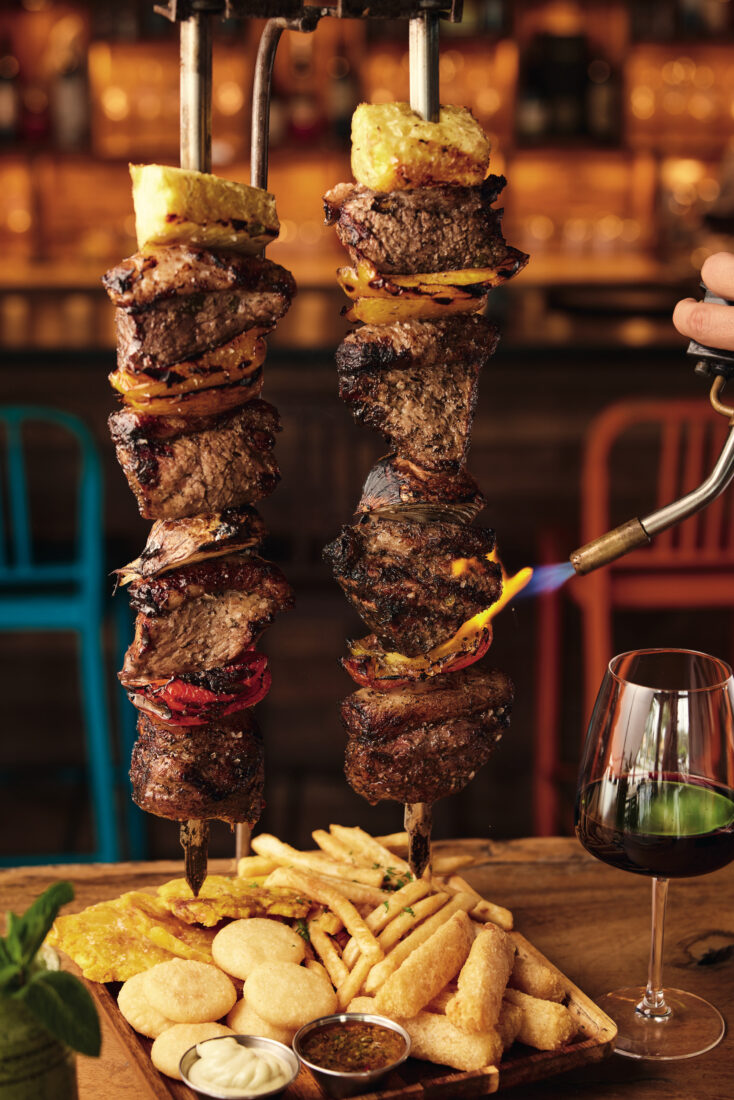
Dominguez is a serial entrepreneur. Before opening Mu in July 2020, he worked construction with his father. Soon after, he opened his own construction company. He worked in the supermarket business, too, and opened his own supermarket. A couple of years after he sold it, Dominguez bought this old restaurant and gas station. And he used his construction skills to build that deck where those fireflies dance.
Like my new friend Arturo, Dominguez sees Mu as a place where people from many different cultures converge. He wants to get Colombians to eat Venezuelan food. He aims to inspire Orlando to travel to the Dominican Republic, if only for one night. Dishes here speak to that ethos. The rib eye, bathed in beef tallow and slathered with chimichurri, comes with a house salad, tossed with a mayo-and-vinegar dressing that Urdaneta says is Venezuelan. Spiked with cumin, cut with lime juice, it tastes like a Latin version of Alabama white barbecue sauce. This food is also personal. The grandmother of Dominguez’s best friend inspired the Mar de Mama, a sort of cioppino that he first tasted in her kitchen, made with fat shrimp and a split lobster tail swimming in a spicy red sauce.
Dominguez talks me through his next ventures. He just opened a barbershop and is working on a brewery. But this all came close to falling apart, he says. Three months before opening Mu, he went to the doctor, feeling sluggish. Open-heart surgery quickly followed. Dominguez ended up with a couple of pig valves and a new attitude. But first came a month in the ICU. Two weeks into that month, he died for forty-five seconds. Doctors brought him back to life. Another surgery followed. He was thirty-two then. He’s thirty-six now.
Telling this story, Dominguez smiles big and broad, a toothy grin that could power a thousand of those café lights. “I want to live,” he tells me, eyeing the band that is now tuning up. “I want to run a restaurant where a customer grabs a server to dance, or a server grabs you to dance,” he says, speaking of the couples from across Latin America who will soon salsa across the beige tile floor of this old McDonald’s.

